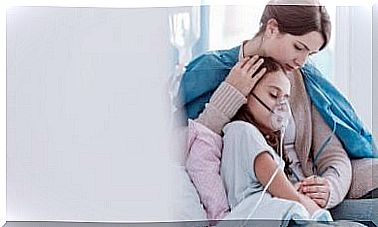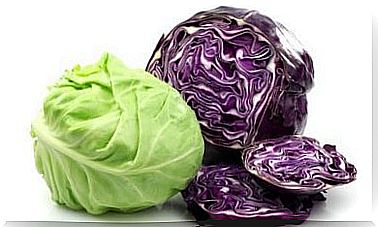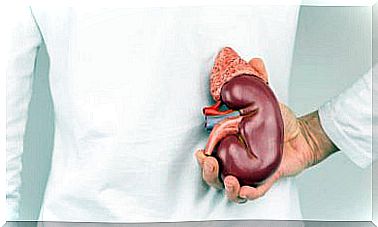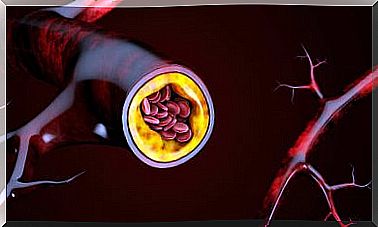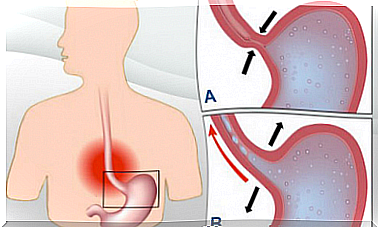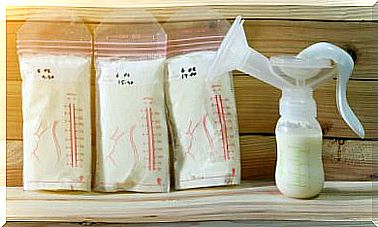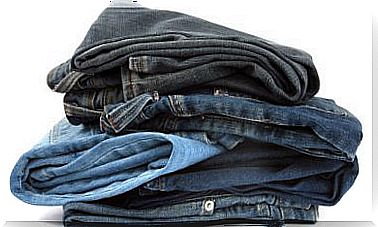8 Care After Tooth Extraction
Surgical procedures in which the dentist removes a tooth from the bone where it is housed have certain safeguards. The care after a dental extraction is necessary so that the treated area can heal and recover.
The intervention is performed under local anesthesia, so as not to feel pain. In very specific cases, it is necessary to sleep the patient completely under general anesthesia. The professional, at first, detaches the tooth from the gingival tissue that supports it.
Then, with elevators and tweezers, you will make movements to loosen it and remove it from the socket that houses it. More complex cases require the use of other instruments to cut the gum, remove bone or break the teeth into smaller fragments.
When the tooth is outside the mouth, a blood clot forms in the space it occupied, responsible for wound healing. Its care and preservation are vital for a proper recovery. In this article we tell you why it is necessary to take care of yourself after a tooth extraction and how to do it.
When is it necessary to extract a tooth?
Tooth extraction is a fairly common intervention in adults. Although current dentistry tries to keep teeth in the mouth, there are times when tooth removal is unavoidable. We detail them below:
- Dental infection : when it is not reversed with antibiotics, it happens repeatedly, it cannot be treated with root canals or it spreads to other areas of the body.
- Risk of infection: patients with a compromised immune system and a tooth that may pose a risk to their health.
- Caries: when the disease is very advanced and there is a lot of destruction of the tooth. These are the cases that cannot be solved with fixes or inlays.
- Tooth fracture or trauma damage: injuries to teeth from blows may require that the teeth or their fragments be removed.
- Advanced periodontitis: the loss of the tissues that support the teeth can cause mobility of the teeth and the need to extract them.
- Dental crowding: cases in which the teeth are overlapping and crowded. The extraction is complemented with orthodontics.
- For orthodontic reasons: as part of orthodontic treatment it may be necessary to remove some teeth to create space.
- Conditions in the wisdom teeth: when these teeth do not have space to erupt, cause pain, become infected or generate other problems in the mouth, it is necessary to remove them.
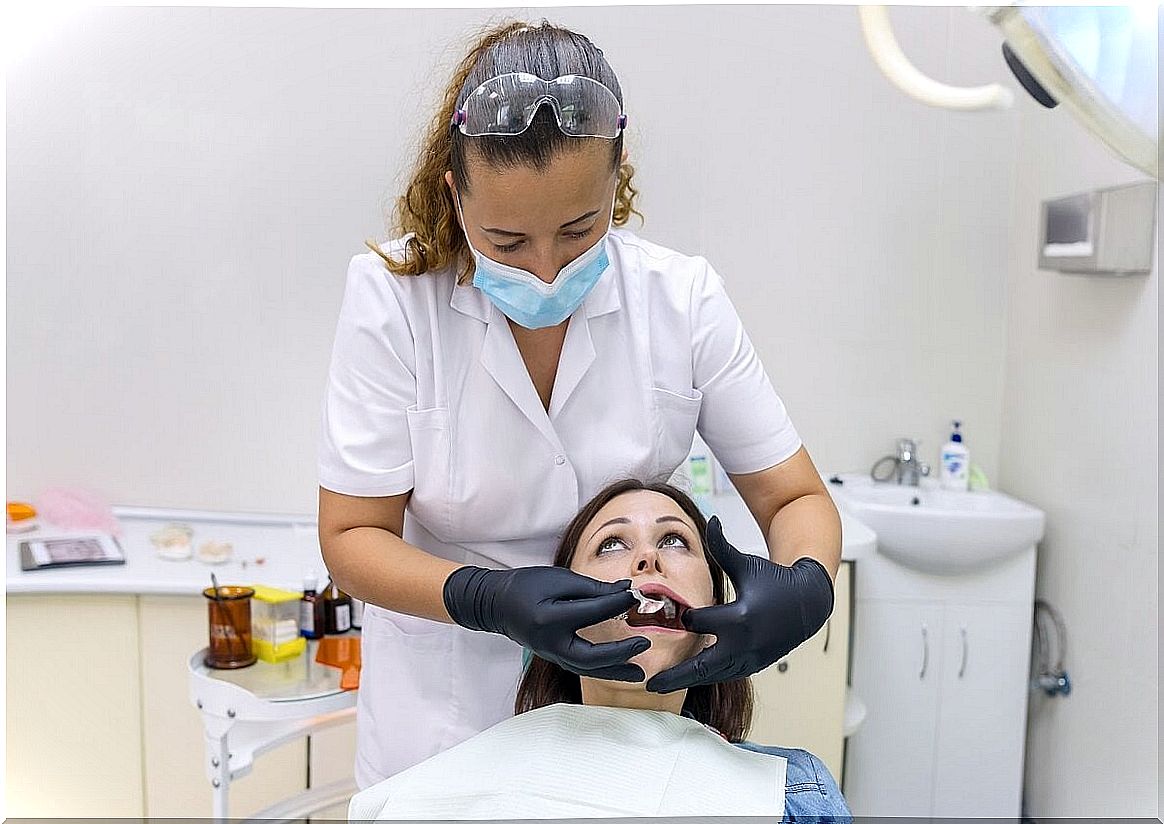
8 tips to take care of yourself after a tooth extraction
After a tooth extraction, postoperative care is very important so that the recovery is the least bothersome for the patient. In general, it will take 7-10 days for the mouth to heal the wound, depending on the type and location of the surgery.
Pain and even swelling with bruises may occur for the first 3 days. Taking care of the blood clot that forms inside the space occupied by the extracted tooth is key to proper healing.
Following the instructions of the dentist is of great importance to avoid inconveniences and have a successful recovery. What must be considered? Apply the following tips.
1. Apply pressure with the gauze
The dentist, after surgery, will place a folded gauze and make you bite. This pressure must be maintained for the first 30 to 60 minutes (the professional will establish it according to each case).
Its placement is to stop bleeding and promote clot formation. As we already mentioned, the plug of blood in the space left by the tooth is necessary for the closure of the wound.
The gauze should not be left on for long, as the clot could stick to it. In this way, once it is removed, the socket would be empty, which would complicate healing.
When the indicated time elapses, the gauze is removed and nothing else is placed. In the case of excessive bleeding that does not stop over time, placing a gauze pad and applying pressure is useful, but the professional should be consulted.
2. Apply cold to the area
Cold helps decrease inflammation, prevent bruising, and soothe pain. For this reason, applying ice packs on the face near the intervened area is very helpful.
The cold should be placed immediately after surgery, at intervals of no more than 10 minutes. Then, rest the same time and can be repeated. Leaving the ice packs on the skin for a long time damages the tissues.
In addition, it is important to avoid proximity to sources of heat, such as the stove, heating and kitchens. It is also not advisable to sunbathe or go outside if the weather is hot.
3. Eat soft and cold foods
After a tooth extraction, it is advisable to avoid eating very hot food. To promote recovery and reduce stress in the area, it is best to consume soft, crushed and easy-to-chew products.
A balanced diet, which contains pasta, eggs, fish, dairy products and cooked vegetables will provide the necessary nutrients, in addition to having the ideal consistency. The zinc present in green vegetables and the vitamin C in citrus fruits contribute to healing.
It is important to avoid consuming these foods with items such as sorbets. Instead, use spoons and take gentle sips. The harder foods can be incorporated gradually, but it is advisable to continue with this care for a week.
4. Rest and not exercise
Limiting physical activity and exertion after tooth extraction helps avoid complications after surgery. It is advisable not to speak too much or move the mouth excessively.
Resting and resting with the head elevated and in a more sitting position is necessary. The horizontal position favors pain and bleeding due to the accumulation of blood. Placing some pillows and cushions on the bed is helpful when sleeping.
5. Take the medication indicated by the professional
After tooth extraction, and when the effect of anesthesia wears off, symptoms such as pain and inflammation appear. For this reason, the dentist often prescribes anti-inflammatory medications in order to reduce discomfort.
If the extraction was done for the presence of an infection, the person may already be taking antibiotics. If not, they will probably be prescribed after the extraction. They should be consumed at the corresponding time, without skipping shots, until completing the treatment for the indicated days.
On the other hand, the patient should tell the professional if they consume other types of medications. This to determine if suspension or replacement is necessary prior to surgery.

6. Do not suck or rinse your mouth
Preventing the blood clot that forms in the socket from shedding is vital for healing. If it comes out, you run the risk of getting an infection or dry socket.
Therefore, it is best to avoid mouthwash, gargle, swish or spit with force. Also, suction movements should be limited, as they increase the risk of loosening the blood plug.
7. No smoking
The use of cigarettes after tooth extraction is harmful and counterproductive. As we already mentioned, the suction movement can cause the clot to dislodge.
Heat promotes bleeding and the risk of bleeding. And, as if that were not enough, tobacco predisposes to infection due to impaired circulation in the area and the presence of toxins.
8. Keep your mouth clean
It is necessary to keep the oral cavity clean after tooth extraction to avoid infection. You should continue brushing and flossing in the usual way, with gentler movements, but avoiding the extraction area.
Brushing the tongue is helpful in reducing odor and taste generated by the healing process. It is important to ensure that food debris does not accumulate in the wound.
After a few days, you can do mild rinses with warm salt water or an alcohol-free mouthwash. It is convenient not to spit them out, but to let them fall by themselves.
Why is it important to take care of yourself after tooth extraction?
Ensuring care after tooth extraction is essential to avoid complications. Wound closure takes 7-10 days. Then, deep down, new bone will be generated to replace the space left.
Thus, complying with the professional’s instructions reduces postoperative risks. The latter include the following:
- Bleeding: The wound continues to bleed profusely and without stopping several hours after extraction.
- Infection: The extraction site smells bad, hurts, throbs, swells, and drains. The face and neck may look swollen, hot, and sore.
- Dry socket: due to a detachment of the clot, the site where the tooth was is left empty, which leaves the bone exposed. It is a very painful condition. The dentist must generate new bleeding and place dressings to begin another healing process.
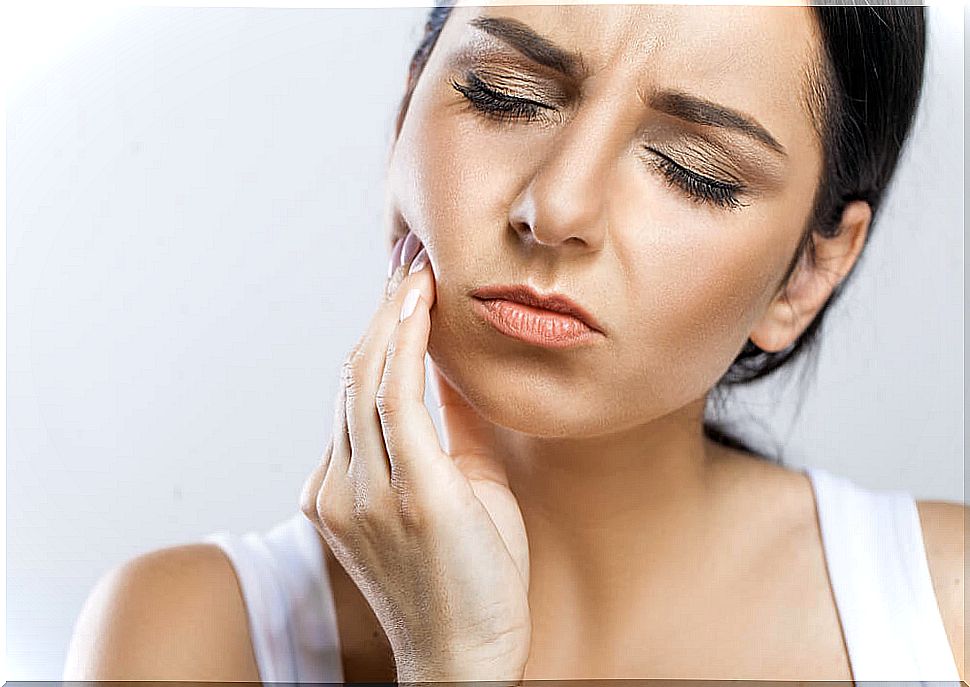
When to see the dentist after tooth extraction?
It may be that despite complying with all the care after a dental extraction, some of the aforementioned complications may occur. If so, it is best to go urgently to the nearest dentist or hospital.
A healthcare professional should be consulted if the following symptoms occur:
- Pain and discomfort that do not go away after 2 to 3 days after the extraction. ‘
- Discomfort or pain that radiates to other parts of the body (ear, head or neck).
- Swelling or swelling in the face or neck.
- Presence of pus in the mouth and in the wound.
- Excessive bleeding that does not stop when you bite down on gauze.
- High fever with general malaise, nausea, or vomiting.
- Tingling, cramping, or numbness in the area after the anesthesia wears off.
- Sensation of pressure under the tongue.
- Difficulty breathing, swallowing, or speaking.
- Cough and chest pain.
If after the extraction everything goes well, it is also advisable to return to the dentist to check the healing and discuss the possibilities of replacing the lost tooth. The professional will be the one who best advises on the alternatives to rehabilitate the mouth and recover function and aesthetics.
Get back the smile
Undergoing a tooth extraction can generate fear and anxiety in the patient who needs it, since it is a surgical act that carries risks and complications. The loss of a tooth also implies thinking of a way to replace it.
Therefore, after the extraction, you should talk with the dentist about the possibilities of making a denture, a fixed bridge or an implant. In addition, it is essential to apply the care after the extraction so that the recovery is as less traumatic as possible.
